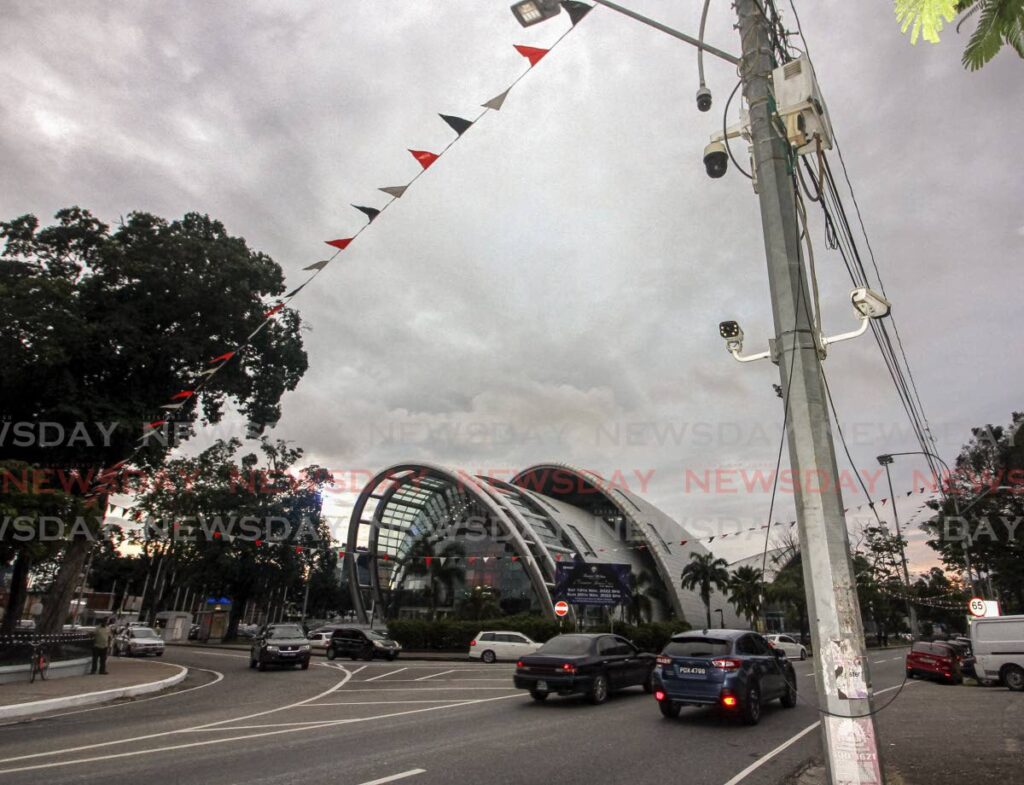Government rejects TSTT's $1b bill for CCTV services

A multi-million-dollar security camera network aimed at giving police and other national security agencies the ability to monitor activities in cities, towns and highways has been found to be riddled with technical problems, producing footage that is is reportedly "blurred, dirty, obstructed, unclear and unstable."
The claim was made as the government mounts a defence to a payment of almost $1 billion that state-owned Telecommunications Services of TT (TSTT) is seeking for operating 1,673 cameras and ancillary supporting services, including command centre and data storage sites.
The dispute over the payment has been referred to be settled before an arbitrator.
Meanwhile, the government has signalled its intention to invest millions more to expand the security camera network to 5,000, giving authorities more eyes in the sky.
In addition to the poor video quality, the state claims some of the cameras were unconnected, improperly positioned, non-functional and damaged. For a period in June 2020, almost half the cameras in Tobago were out of action, it claims. It also says the zooming and panning functions to track vehicles was deemed to be too slow and retrieving footage was slow.
TSTT is being represented by Martin Daly, SC, Christopher Sieuchand and Sonnel David-Longe. The state has retained Terrence Bharath and Tamara Toolsie, assisted by state attorney Kezia Redhead and Rachel Weekes Wright.
In early November, the Prime Minister said after meeting with police commanders, the government had already invested $80 million in 1,500 cameras and intended to double that figure to give police more tools to be able to track and capture criminals.
In September 2020, Dr Rowley referred to the debt to TSTT, saying the company had overcharged taxpayers by $300 million for providing security camera services.
Documents filed on July 18, before the arbitrator, retired Caribbean Court of Justice judge Rolston Nelson, sets out TSTT's claim for $751, 870, 421, with varying rates of interest between April 2017 and October 2019, as well the government's defence rejecting the figure.
The government has a 51 per cent shareholding in TSTT, and 49 per cent is owned by Cable and Wireless, a foreign company.
TSTT's contends that between July 1, 2013 and June 30, 2017, it engaged in a contractual agreement with the government to provide managed video surveillance services for the state by installing 873 cameras and four control rooms, at a cost of $481,896,000, VAT inclusive.
The company claims a letter of intent from the permanent secretary of the National Security Ministry confirmed the state's intention to expand the network with an additional 800 cameras, at a cost of $414 million, VAT inclusive, taking the end date of the contract to January 11, 2021.
TSTT said it billed by government $21 million monthly and was paid part of its debt, with an outstanding sum of almost $752 million.
But in its December 5 response, the state claims it has already paid the debt in full, and TSTT has failed to support its claim for any more money.
It refers to an initial four-year agreement on April 1, 2009 for 373 cameras, three command centres, data storage facilities and other supporting infrastructure at a cost of $4.2 million, which was expanded to include 500 more cameras in 2013. The state claims it agreed to pay almost $10 million monthly.
The state disputes any formal contract between July 1, 2003 and January 11, 2021. It accepts a contract to provide 873 cameras between July 1, 2013 and June 30, 2017, and an intention to agree on the provision of 800 more for a three-year period starting in 2015.
The state claims although four years had elapsed since the first cameras were installed, TSTT did not upgrade the 500 additional cameras, and described the models selected as "outmoded by the year 2017."
The state admits that TSTT continued to provide video surveillance services beyond June 2017, with a total of 1,673 cameras, some of which were then eight years old and with dated technology, and submitted invoices of $21 million monthly.
In the absence of a contract, the state says TSTT is only entitled to be paid "a reasonable sum" for its services, which it estimates as not exceeding $4 million a month.
The state based its estimate on factors including the age of the CCTV network provided by TSTT; the comparative market rates for data transportation and fibre connectivity for each of the 1,673 cameras; and the average cost of the cameras provided by TSTT.
The state is also relying on commitments made by TSTT's general manager Ian Galt to waive the company's claims for compensation between October 2019 and September 2020 ($252 million) during negotiations for a new eight-month contract in 2020. This included video surveillance from the 1,673 cameras and an additional 132 cameras owned by the state, at a cost of $60 million, which included a mobilisation fee of $28 million and $4 million monthly.
In July 2020, the state tried to settle its debt with a payment of $200 million, but TSTT did not respond to the offer.

Comments
"Government rejects TSTT’s $1b bill for CCTV services"